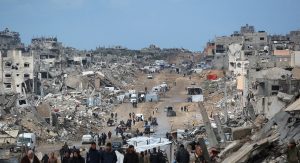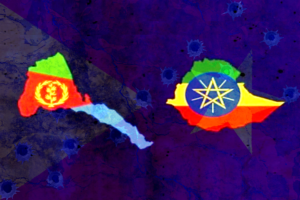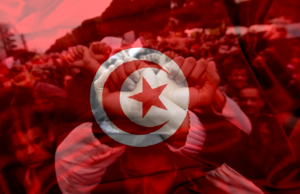RECAP: Israel-Palestine: A Historical and Contemporary Analysis of comprehensive and passionate reflection on the Israeli-Palestinian conflict and broader geopolitical implications

The Israel-Palestine Conflict takes a dark downturn: From Rockets/Nukes to Humanitarian Crisis


![]()
The Middle Eastern problem is deeply rooted in history. In modern terms, we must return to the Balfour Declaration and its consequences, especially in 1948, when the State of Israel was established. This event also marks what Palestinians call the Nakba (The Catastrophe), during which a large portion of the Palestinian population was expelled.
To understand what is happening today, we must contextualize it within this history. Since 1948, Palestinians have seen themselves as an aggrieved people. Israel, in turn, has often been on the defensive from the 1948, 1967 and 1973 wars, to the two Intifadas (uprisings). The Middle East has remained a volatile region, with ongoing conflict between Arab nations and Israel, culminating most recently in the events of October 7, 2023, and the current war in Gaza.
This war will not be resolved quickly unless the root issues are addressed. We must ask: What was the original sin that led to this prolonged conflict? The Israeli-Palestinian issue is complex and resists simplistic solutions.
The Two-State Solution: The Path Forward
There is broad international consensus among objective observers that the most viable solution is the two-state solution, which originated in the Oslo Accords. The idea was to establish an independent State of Palestine living peacefully alongside Israel, which has existed since 1948.
However, both sides contain extremist factions: some in Israel oppose a Palestinian state, while some in Palestine and in allied groups like Hamas, Hezbollah, and the Houthis, reject the existence of Israel entirely. Reconciling these extremes is a significant barrier to peace.
Over time, moderate voices like Yasser Arafat accepted Israel’s right to exist. Still, the rhetoric from some state and non-state actors, such as calls to eliminate Israel, keeps Israel on perpetual defense.
Yet, true peace will only come when the world insists on a two-state solution, despite the difficulties posed by extremists. The UN, the Arab League, and even the United States have not fulfilled their roles adequately. The U.S., while influential, has often undermined peace efforts by casting its lot too firmly with Israel, thereby hindering progress toward a sustainable solution.
The October 7th Attacks and Israel’s Response


The Hamas attack on October 7, 2023, was unacceptable and must be condemned. However, Israel as a nation founded in the shadow of genocide and as a signatory of the 1948 Genocide Convention, has a unique responsibility to protect human life and uphold international law.
Statements from Israeli leaders have been deeply troubling. President Isaac Herzog, considered a moderate, has described Palestinians in dehumanizing terms. Other officials have invoked biblical justifications for total annihilation of Gaza, echoing genocidal language. Denying basic necessities like water, fuel and food, to civilians and treating all targets as military is indefensible.
The South African referral to the International Court of Justice (ICJ) is therefore a welcome and justified move. After reviewing the 84-page submission, it is clear that it presents a compelling case and must be supported by all people of goodwill.
Africa’s Position and the Geopolitical Stakes
Kenya’s stance in condemning Hamas but supporting Israel’s disproportionate response, is regrettable. A unified African Union position would have been preferable. African nations must not allow themselves to be manipulated into positions that defy logic and justice.
The Red Sea, a critical maritime route, is now under threat. With the Houthis targeting ships, global trade has already been disrupted. Shipping companies like Maersk have rerouted vessels, leading to higher costs, longer transit times, and economic strain, especially on oil-importing countries.
This is not just a Middle Eastern problem, it has global implications for trade, inflation and political stability.
The Danger of Escalation and Global Power Dynamics
The United States, since 1945, has styled itself as the defender of the free world. But history shows that it often acts unilaterally, ignoring the UN and international law, as in Iraq and elsewhere. This has contributed to a global perception of hypocrisy and double standards.
Today, the risk of regional war escalating into global conflict is real. Israel has hinted at using nuclear weapons in Gaza, which is an alarming and dangerous revelation. Iran, while rhetorically aggressive, appears reluctant to engage in full-scale war. Even nuclear powers like China and Russia have shown caution.
Groups like Hamas, Hezbollah, and the Houthis are non-state actors, unconstrained by international law. They can strike anywhere, turning the entire world into a potential battlefield. This underscores the importance of de-escalation and responsible diplomacy.
The Red Sea and Global Trade
The Red Sea’s strategic importance cannot be overstated. It connects the Mediterranean viba the Sub Canal to the Indian Ocean, reducing trade costs significantly. Ports like Djibouti, Asab, and Hodeidah are key nodes in global trade.
Conflict in this region risks not only trade disruptions but also worsening refugee crises, particularly in already unstable regions like Djibouti, Somalia and Ethiopia.
This is a matter of urgent concern for the United Nations, Gulf Cooperation Council (GCC), African Union, and the Arab League, as well as major powers in Europe and beyond.
Preventing Armageddon and Reforming Global Institutions
There have always been predictions of the end times—whether in the fall of Rome, the wars of the 20th century, or theological prophecy. But we now live in an era where nuclear weapons make such fears frighteningly realistic.
The UN, founded in 1945 to prevent war after the failure of the League of Nations, is increasingly ineffective. Resolutions are ignored with impunity. It is time to reform the UN, to give it the tools and authority to enforce peace and resolve conflicts.
Conclusion: Two States, One Hope
Ultimately, the two-state solution remains the only path to lasting peace. Israel, as the stronger and more stable party, must take the initiative to make this possible—returning to the 1967 boundaries as a starting point.
Creating a sovereign Palestinian state would bring accountability and stability. Without such a state, groups like Hamas and Hezbollah will continue to arise, filling the void of representation and further destabilizing the region.
Peace will only come when both Palestinians and Israelis have states, have dignity, and are recognized as equal members in the community of nations.
In such matters, neutrality is not honesty. Justice demands that we condemn all violence, but also that we seek the root causes. And the root lies in history—in 1948, in Nakba, in occupation, and in apartheid. We must choose peace by choosing justice.
Source: Prof. PLO Lumumba Timeless Speech Excerpt | The Alfa House Media









